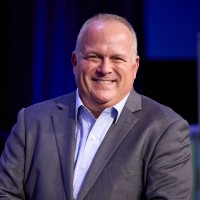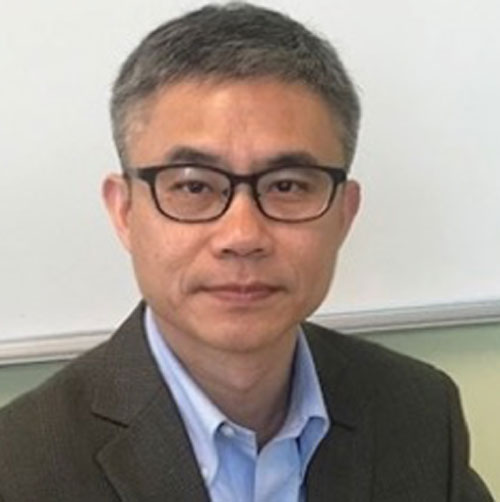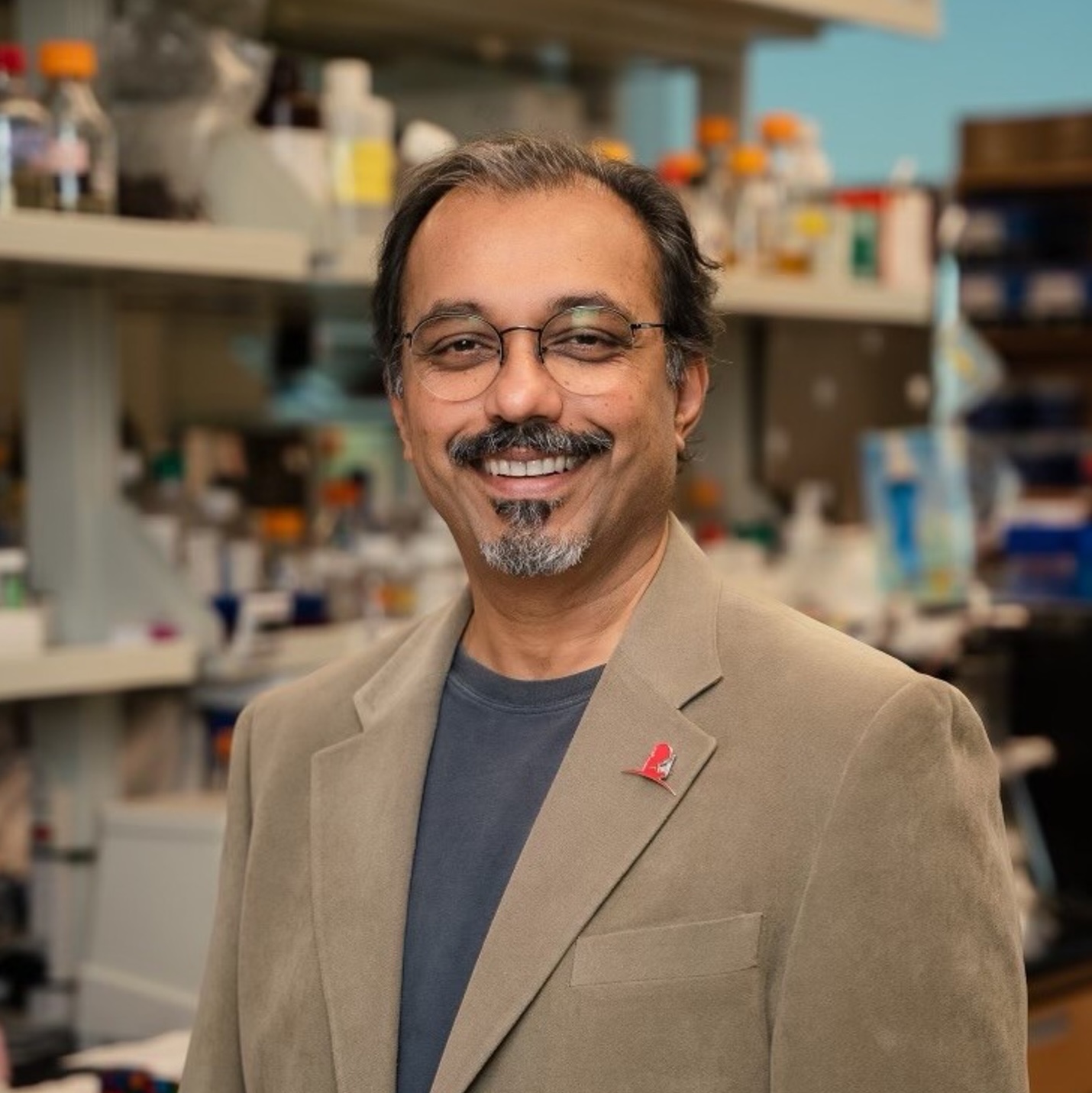Pharm Forum Speakers & Schedule
Pharm Forum Speakers
Keynote Speakers
 Russell Weiner, PhD
Russell Weiner, PhD
President, American Association of Pharmaceutical Scientists
Russell Weiner, PhD, FAAPS is a globally recognized leader in the biopharmaceutical field with over 30 years of expertise in drug development, personalized medicine, regulated bioanalysis, and the development of biomarkers and companion diagnostic assays. In his most recent role as VP, Head of Translational Sciences at Alexion Pharmaceutical/AstraZeneca, Dr. Weiner is responsible for rare disease translational strategy, translational research, biomarker development, regulated bioanalysis, companion diagnostics and the rare diseases biorepository. This end-to-end team supports discovery through phase IV life cycle management.
Dr. Weiner earned his PhD in Biochemistry from Albany Medical College. His career includes leading roles in regulated bioanalysis, translational biomarker sciences, and companion diagnostic development at major organizations such as Bristol-Myers Squibb, Merck, Daiichi Sankyo, the Bill & Melinda Gates Medical Research Institute, and Takeda. His work has significantly advanced personalized medicine approaches for cancer. He played a key role in the development of Erbitux® for oncology and contributed to the advancement of several immuno-therapeutics, including the checkpoint inhibitors Orencia® for rheumatoid arthritis and Nulojix® for kidney transplantation. Dr. Weiner was also instrumental in the development and approval of pioneering checkpoint inhibitors, Yervoy® and Keytruda®, including the associated Agilent/Dako companion diagnostic assay, PD-L1 IHC 22C3 pharmDx. An active member of the American Association of Pharmaceutical Scientists (AAPS) for over 30 years, Dr. Weiner currently serves as AAPS President. His past contributions include chairing the Biotech Section, serving as a Member-at-Large on the AAPS Board of Directors, and chairing the AAPS Annual Meeting (PharmSci 360). Known for his sense of humor and dedication to mentorship, Dr. Weiner also serves as Adjunct Faculty in the Department of Pharmaceutics at the University of Florida College of Pharmacy. He frequently travels to universities both domestically and internationally to provide training in soft skills, interview preparation, and career guidance.
Speech Title: Challenges of Conducting Clinical Trials in Low- and Middle-Income Countries: Case Studies on the Importance of Preanalytics
Abstract
Conducting clinical studies, particularly those involving bioassays, presents significant challenges, which are further amplified in low- and middle-income countries (LMICs). While tasks like shipping samples are routine in high-income countries, they often become major hurdles in LMICs, jeopardizing the quality of precious clinical samples. These challenges are compounded by frequent infrastructure failures, such as power outages, water shortages, staffing instability, and protests. Operating outside major cities introduces additional obstacles. Successfully conducting clinical studies in such environments requires constant problem-solving, meticulous attention to detail, a contingency plan, and, above all, a can-do attitude to address the needs of underserved patients. This presentation will delve into the many pre-analytical challenges one must consider using the extreme case of conducting clinical trials in LMICs.
 Donghua Yin, PhD
Donghua Yin, PhD
Vice President and Head of Clinical Pharmacology, Pfizer Oncology Division
Donghua Yin, PhD is currently Vice President and Head of Clinical Pharmacology, Pfizer Oncology Division. He has more than 20 years of experience in developing small molecules and biologics drug candidates, mainly in the oncology area. His main expertise is on pharmacokinetics and pharmacodynamics, and their applications in facilitating efficient and quantitative drug development. He has authored over 100 scientific publications and conference presentations and is co-inventor of 10 US patents. He also serves as Adjunct Clinical Professor at the College of Pharmacy, University of Michigan. He received his PhD in Pharmaceutics from the University of Tennessee Health Science Center and completed post-doctoral training at the Ohio State University.
Speech Title: Applications of Model-Informed Drug Development in Oncology
Abstract
Modeling and simulation (M&S) have been an important tool to facilitate efficient and accelerated drug development. The applications of M&S across different stages of drug development have transformed the oncology drug development paradigm, as oncology therapeutics evolved from traditional cytotoxic agents to modern targeted therapies. The current presentation will highlight how various M&S techniques have been used to support preclinical to clinical translation, dose selection and optimization, Go/No Go decisions, and different clinical pharmacology assessments in oncology drug development. Case studies involving the use of M&S to support early- or late- stage development of different modalities of oncology investigational agents will be provided.
 Aseem Ansari, PhD
Aseem Ansari, PhD
Chair, Chemical Biology & Therapeutics, St. Jude Children's Research Hospital
Speech Title: Chemical Induced Proximity in the Development of New Therapeutics
Aseem Ansari, PhD, is an internationally recognized scientist who has contributed key insights into chemical control of genes and has pioneered the field of “Transcription Therapy”. As the Chair of Chemical Biology and Therapeutics at St. Jude Children’s Research Hospital, his program develops rationally designed synthetic gene regulators (SynGRs) as therapeutic agents for a range of human diseases, including childhood cancers, neurodegenerative disorders, and other catastrophic diseases. In 2017, Dr. Ansari co-founded Design Therapeutics to develop SynGRs as “induced proximity” therapeutics. A first-in-class molecule, DT-216, developed by the startup is currently in clinical development as a treatment for Friedreich’s ataxia. The Lego-like modular assembly of SynGRs has fueled the development of promising therapeutic leads for a growing list of previously undruggable human diseases.
Abstract
Abstract : As genomic campaigns reveal new therapeutic targets, many of these are considered undruggable due to a lack of defined pockets for small molecule binding. Examples include transcription factors, fusion oncoproteins, and unstructured segments of disease-driver proteins. To surmount the difficulties of finding potent and selective therapeutics for such challenging targets new chemical modalities that go beyond the classic “Rules of Five” of drug development are being actively explored. The “beyond the rules of five” strategy is anchored on the resounding success of not-so-small molecules that induce proximity between cellular proteins to drive desired therapeutic outcomes. At St. Jude, engineering small molecules to rationally engage targeted cellular partners is yielding potent, selective and effective bioactive molecules against oncogenic and neurodegenerative targets that have previously evaded chemical intervention. These new therapeutic modalities rely on parallel development of novel means of targeted delivery to diseased cells. These intertwined advances in design of “induced proximity” therapeutics and in the delivery of such complex molecules to target cells/tissues/organs will drive the next phase of drug development. Recent successes, the future promise, and extant challenges will be presented.
Pharm Forum Schedule
Agenda
Note: All events, except the social event, will occur at the UT Health Science Center College of Pharmacy.
Address: 881 Madison Avenue, Memphis, TN 38163
Download Agenda PDFDay 1: Friday, May 9 | 2 – 9 PM
2 – 4 PM Registration
4 – 4:15 PM Opening Session
4:15 – 5:15 PM Keynote Speaker 1: Russell Weiner, PhD, President, American Association of Pharmaceutical Scientists
“Challenges of Conducting Clinical Trials in Low- and Middle-Income Countries: Case Studies on the Importance of Preanalytics"
5:15 – 5:30 PM Coffee Break
5:30 – 7 PM Podium Session 1
- 5:30 - 6 PM Uma S. Singh, PhD, University of Georgia. “POM-L-BHDU-MP, a Potent Nucleotide to Treat Shingles Oral and Genital Herpes”
- 6 – 6:30 PM Ashish Srivastava, PhD, University of Tennessee Health Science Center. “Exposure Response Assessment of a Novel, Directly Acting Antiviral, BDGR-251, in EEEV Infected Mice”
- 6:30 – 7 PM Samaneh Goorani, PhD, University of Arkansas for Medical Sciences. “Novel eicosanoid-targeting compounds protect rat kidney epithelial and glomerular cells from damage during cold storage in organ transplant solutions”
7 – 9 PM Dinner and Fun Activity
Day 2: Saturday, May 10 | 8 AM – 5 PM
7 – 8:15 AM Breakfast
8:30 AM – 9:30 AM Keynote Speaker 2:Donghua Yin, PhD. Vice President and Head of Clinical Pharmacology, Pfizer Oncology Division
“Applications of Model-Informed Drug Development in Oncology”
9:30 – 9:40 AM Break
9:40 – 11:40 AM Podium Session 2
- 9:40 – 10 AM Ramya Bandarupalli, University of Mississippi. “Molecular Dynamics Simulations and Ensemble Docking for Accurate Prediction of hERG Channel Blockade”
- 10 – 10:20 AM Ben Blackburn, University of Georgia. “The Impact of Thiamine insufficiency on Alzheimer's Pathology using a 3xTG Transgenic Mouse Model and Graded Levels of Thiamine”
- 10:20 – 10:40 AM Tsigereda Weldemichael, University of Arkansas for Medical Sciences. “8,9-EET Analogs Against Doxorubicin-Induced Podocyte Loss”
- 10:40 – 11 AM Jemima Sani, University of Georgia. “Reinvigorating Exhausted Tumor-Infiltrating Human Lymphocytes (TILs) Using Novel Calcium Nanoparticles in 3D Patient-Derived Tumor Organoids and PDX Mice Models.”
- 11 – 11:20 AM Ishita Kathuria, University of Tennessee Health Science Center. "Myeloid Cell Lgr4 Contributes to Atherosclerotic Lesion Formation”
- 11:20 – 11:40 AM Tzu-Yu Huang, University of Tennessee Health Science Center. “Thiol-mediated Photocatalytic Hydrocarboxylation of gem-Difluoroalkenes”
11:45 – Noon Poster Set Up
Noon – 2 PM Lunch and Poster Session
2 – 3 PM Keynote Speaker 3: Aseem Ansari, PhD, Chair, Chemical Biology & Therapeutics, St. Jude Children's Research Hospital
“Chemical Induced Proximity in the Development of New Therapeutics”
3 – 5 PM Podium Session 3
- 3 – 3:20 PM Yasmin Anderson, University of Georgia. “Thiamine Supplementation Exerts Neuroprotection Against Hif1a-Mediated Toxicity from Aβ1-42”
- 3:20 – 3:40 PM Malvin Ofosu-Boateng, University of Tennessee Health Science Center. “Human pregnane X receptor (PXR) signaling promotes sexual dimorphism in alcohol-associated liver disease”
- 3:40 – 4 PM Elizabeth Hughes, University of Georgia. “Development of a Time-based Drug Screening Platform for Improved Clinical Translation”
- 4 – 4:20 PM Lidya Gebreyesus, University of Tennessee Health Science Center. “PXR Deletion Mitigates MAFLD in Female Mice by Enhancing Energy Expenditure and Mitochondrial Function”
- 4:20 – 4:40 PM Md Abdullah Al Mamun, University of Tennessee Health Science Center. “VERU-111: A Promising Novel Therapeutic for Colorectal Cancer”
- 4:40 – 5 PM Saloni Sood, University of Arkansas for Medical Sciences. “Design and Development of a Novel Benzo[d]imidazole Derivative NG-02 Against Estrogen Receptor Alpha (ERα)-Positive Breast Cancer”
6 – 9 PM Social Event and Dinner at Memphis Made, 16 S Lauderdale St, Memphis, TN 38103
Day 3: Sunday, May 11 | 7 AM - Noon
7 – 8:15 Breakfast
8:15 – 8:20 AM Morning Address
8:20 – 10:20 AM Podium Session 4
- 8:20 – 8:40 AM Lindsay L. Davenport, University of Georgia. “Understanding drug combinations displaying clinical synergy in colon cancer in vitro”
- 8:40 – 9 AM Md Asaduzzaman Rakib, University of Tennessee Health Science Center. "12/15-lipoxygenase inhibition after status epilepticus attenuates neuronal inflammation & injury”
- 9 – 9:20 AM Mir Shahriar Kamal, University of Tennessee Health Science Center. “Discovery of Potent and Orally Bioavailable SERCA2 Activators for the Treatment of Ischemic Stroke-Related Brain Damage”
- 9:20 – 9:40 AM Amin Akbari Ahangar, University of Mississippi. “Impact of Pore-Facing Glycosylation on GABAA Receptor Gating”
- 9:40 – 10 AM Stella Babatope, University of Georgia. “Comparative Optimization of Chemotherapy Drugs in 2D and 3D PANC-1 Cells for Pancreatic Cancer Treatment”
- 10 – 10:20 AM Mona Kazemi Sabzvar, University of Tennessee Health Science Center. “Evaluation of U2AF Homology Motif (UHM) splicing factor inhibitors as a spliceosome-targeted therapy in hematologic malignancies”
10:20 – 11 AM Coffee Break and Socializing
11 – 11:30 AM Results and Awards Ceremony
11:30 – Noon Closing Remarks
Noon Lunch and Disperse
